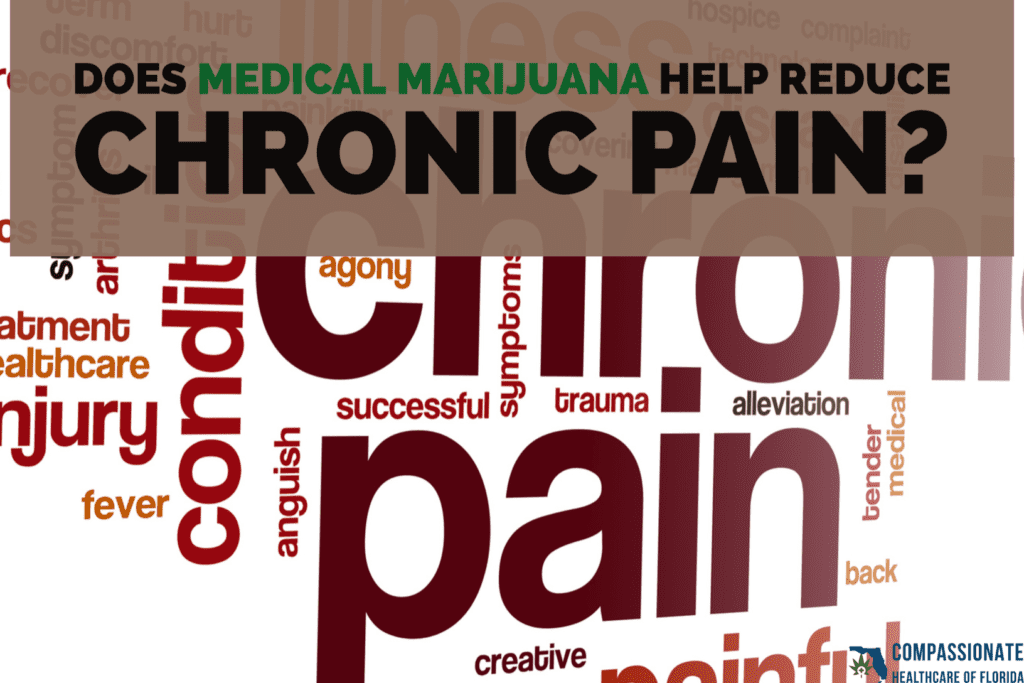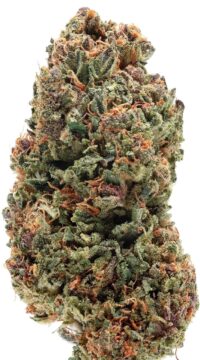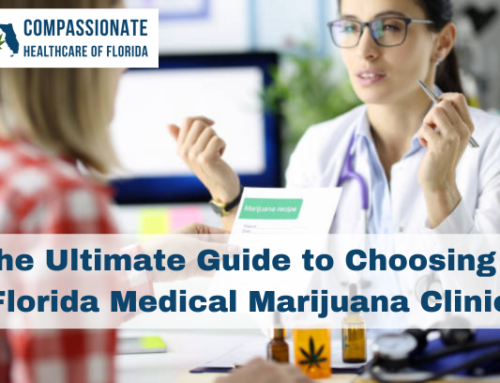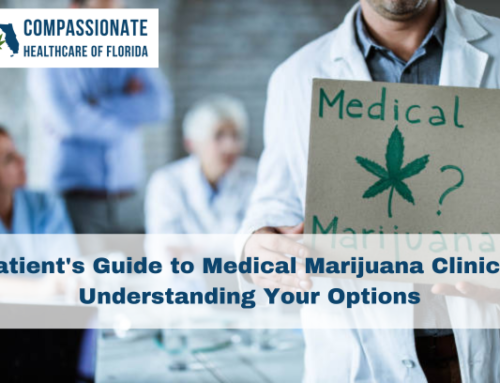
According to the CDC, over 50 million adults live with chronic pain in the United States.
Chronic pain is a high-impact condition that decreases the quality of life and increases the prevalence of psychiatric issues, such as depression and anxiety. However, medical marijuana has been extensively researched by scientists worldwide to answer the question: does medical marijuana help reduce chronic pain?
Below, we’ll discuss everything you need to know about medical marijuana and how it works with your mind and body to assist with various forms of chronic pain.
What is Chronic Pain and How Does Medical Marijuana Help?
 Chronic pain is defined as pain that persists for more than 12 weeks and can be caused by various conditions such as arthritis, fibromyalgia, and nerve damage.
Chronic pain is defined as pain that persists for more than 12 weeks and can be caused by various conditions such as arthritis, fibromyalgia, and nerve damage.
Medical marijuana, also known as medical cannabis, is a treatment option that has been gaining attention in recent years for its ability to relieve chronic pain.
One of the main active compounds in medical marijuana is tetrahydrocannabinol (THC), which is responsible for its pain-relieving properties. THC binds to receptors in the brain and spinal cord, known as CB1 receptors, which are involved in pain perception. When THC binds to these receptors, it can reduce the sensitivity to pain and increase the release of natural pain-relieving chemicals in the body.
Another active compound in medical marijuana is cannabidiol (CBD), which has also been found to be effective in reducing chronic pain. Unlike THC, CBD does not bind to CB1 receptors; instead, it interacts with other receptors in the body, such as the vanilloid receptor (TRPV1), which is involved in the perception of pain.
Studies Reveal How Medical Marijuana Reduces Chronic Pain
A review of studies published in the Journal of Clinical Pharmacology in 2018 found that medical marijuana can effectively reduce chronic pain caused by conditions such as neuropathy, fibromyalgia, and rheumatoid arthritis.
The review included 29 studies involving more than 2,500 patients and found that, on average, medical marijuana reduced chronic pain by 30%.
Another study published in the European Journal of Pain in 2017 found that medical marijuana can effectively reduce chronic pain caused by nerve damage. The study included 57 patients and found that those who received medical marijuana significantly reduced pain compared to those who received a placebo.
Lastly, a study published in the Journal of Pain in 2016 found that medical marijuana can effectively reduce chronic pain caused by conditions such as multiple sclerosis. The study included 48 patients and found that those who received medical marijuana significantly reduced pain compared to those who received a placebo.
Overall, these three medical studies are only a drop in the bucket regarding medical marijuana research.
What are the Best Medical Marijuana Strains for Chronic Pain?
If you live in a state that allows medical marijuana — you’ll notice everything is sold under a medical banner.
However, not all cannabis strains are created equal. With this in mind, you’ll want to search for specific marijuana strains geared toward chronic pain relief. To the surprise of many, it’s not the highest THC content you should seek — it’s the terpene content.
Below, we’ll dive into the basics of terpenes and how they can assist you in finding the best medical marijuana strain for chronic pain.
How to Use Terpenes to Find the Best Medical Marijuana Strains for Chronic Pain
 Terpenes are a class of organic compounds found in many plants, including cannabis.
Terpenes are a class of organic compounds found in many plants, including cannabis.
Although terpenes are responsible for the unique aroma and flavor of different cannabis strains — they have a hidden characteristic that’s catapulted them in importance among medical marijuana patients.
Some studies have shown that certain terpenes, such as caryophyllene and linalool, have anti-inflammatory and pain-relieving properties. These terpenes interact with the body’s endocannabinoid system, which helps regulate pain, inflammation, and other physiological processes.
As it so happens, caryophyllene is a terpene found across a wide variety of marijuana strains, such as:
- Girl Scout Cookies (GSC)
- Bubba Kush
- Sour Diesel
- Gelato
- Master Kush
As for linalool, keep your eye out at your local medical marijuana dispensary in Florida for these unique strains:
- Granddaddy Purple (GDP)
- Do-Si-Dos
- Kosher Kush
- Durban Poison
- Zkittlez
- Lavender
Whether you prefer to consume medical marijuana in flower, concentrate, or edible form, always check the terpene profile to ensure it contains chronic pain-relieving properties.
Should You Consume Medical Marijuana for Chronic Pain?
 Chronic pain is a life-altering condition that forces individuals to choose — to take prescription medication or try medical marijuana.
Chronic pain is a life-altering condition that forces individuals to choose — to take prescription medication or try medical marijuana.
The downsides of prescription painkillers are staggering:
- Increased risk of dependency/addiction
- Overdose
- Sedation
- Nausea
- Depression
Alternatively, medical marijuana is not linked to dependency or overdose risk. Furthermore, medical marijuana is natural and lab-tested, making it a much less risky option for reducing chronic pain.
Ultimately, it’s your decision to consume medical marijuana for chronic pain. From consulting your primary physician in Florida to contacting a medical marijuana doctor, you’ll gain everything you need to make an informed decision.
Open the Door to Chronic Pain Relief With a Medical Marijuana Card in Florida
With over 450 licensed medical marijuana dispensaries in Florida, there’s no better time than now to apply for your MMJ card to reduce chronic pain.
Hundreds of qualifying medical conditions in Florida allow access to medical marijuana, and chronic pain is high on the list. If you’re ready to get your life back on track by reducing the severity of chronic pain — contact Compassionate Healthcare of Florida.
From their no-risk guarantee to certified medical marijuana doctors, you’ll soon have access to countless medical marijuana products once you contact Compassionate Healthcare of Florida.



